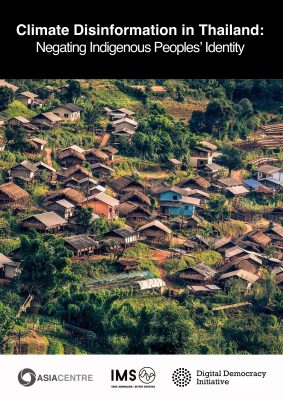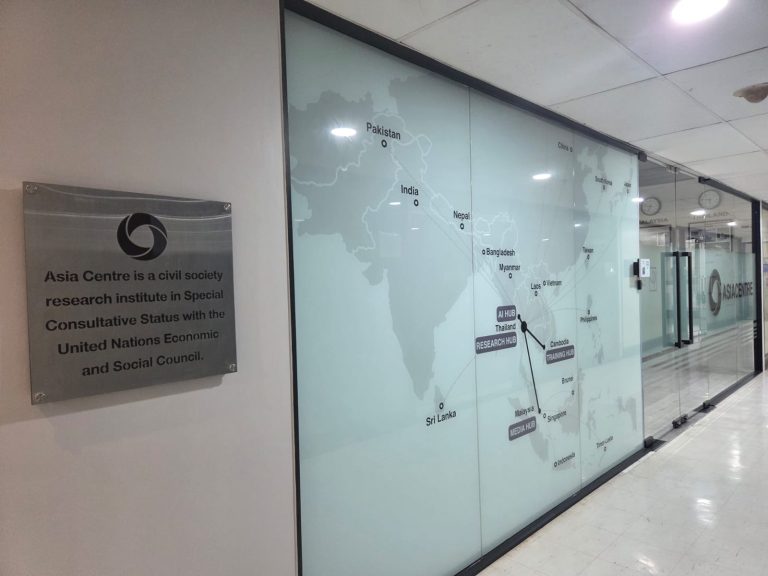
In Thailand, the rapid digitalisation of media and widespread use of social media since the early 2000s have accelerated the spread of climate disinformation. This has reinforced the systemic negation of Indigenous Peoples’ (IPs) identity. Climate disinformation disproportionately affects IPs, who make up nearly 14% of the population and inhabit forested areas most vulnerable to climate change and deforestation. From one-sided reporting and greenwashing to false climate solutions and scapegoating IPs as drivers of deforestation, these narratives contribute to their exclusion from decision-making, criminalisation, forced evictions and intimidation and violence. It sets out targeted recommendations, urging the government, international bodies, civil society, media sector and technology companies to integrate climate disinformation into human rights monitoring, expand Indigenous-led counter-narratives and ensure meaningful IP participation in climate governance. Tackling climate disinformation is essential to safeguarding IP identity and ensuring inclusive, rights-based and effective climate action in Thailand.



